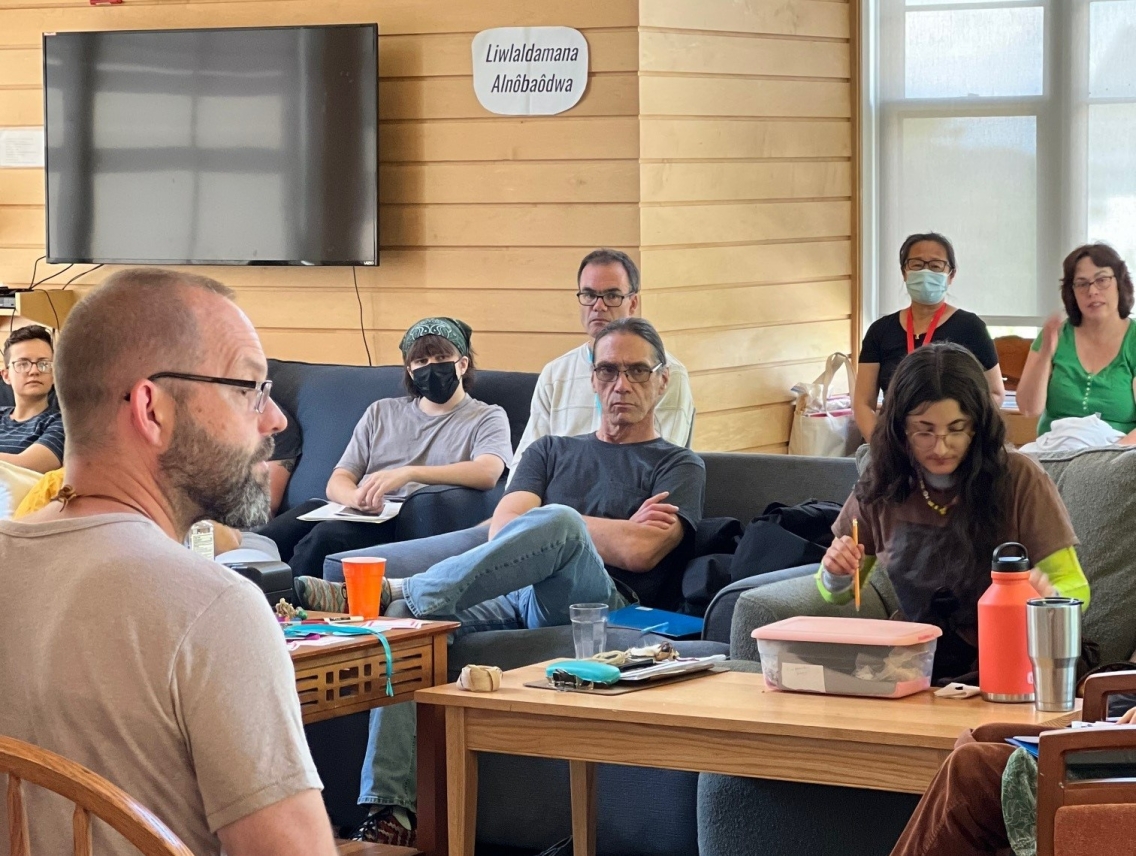8 Tips to Make the Most Out of Language Immersion Programs

Learning a new language can be difficult, especially when you’re starting from zero. It can be even more of a challenge when you try to learn a new language when you’re much older.
As we grow older, our brains also mature — essentially becoming set in its ways and less able to reconfigure or adapt to new experiences.
But that’s not to say it’s impossible. It may be hard but it’s still doable.
The secret is to dive into learning the language wholeheartedly. One of the best ways to do this is through language immersion programs for adults.
Are Language Immersion Programs Worth It?
Yes, they are! They may seem intense at first, but they’re also a very realistic and faster way to learn a new language.
The language programs essentially fit a whole year’s worth of language lessons into just a few weeks. In language learning programs, the learning isn’t limited to inside the classroom.
You will speak, listen, and read in your target language daily. Living full-time using only that language speeds up your understanding not only of the vocabulary and grammar, but also of the cultural context of the language.
It pushes your brain to adapt faster, helping you develop better cognitive flexibility, memory, and thinking skills. Moreover, immersing yourself in the language helps build your confidence, helping you become more comfortable using the language outside of the program.

Tips to Make the Most Out of a Language Immersion Program
Language immersion programs for adults are worth it. At the same time, joining these programs doesn’t mean you will pick up the language immediately, as if by magic. That still requires a lot of patience, determination, and consistency on your end for it to be successful.
In short, you need to put in the work and take advantage of the conducive environment for learning.
Find below our top tips to help you maximize your experience in summer language immersion programs.
1 - Prepare for the Program as Much as Possible
The more prepared you are to learn and absorb new grammar and vocabulary, the better results you can expect by the end of the term. It’s not just the tools you need to prepare — it’s more important to prepare yourself.
This means learning as much as you can beforehand. You don’t need to master it by yourself. The point is to familiarize yourself with some basic terms, key differences with grammar structures, and more. There are plenty of language learning apps, books, podcasts, and more that can help with that.
Dipping your toes into the water before the language immersion program can help you feel more comfortable with upcoming lessons and actually speaking the language. Additionally, it can help you identify certain parts of the language that may confuse you, which you can later bring up with your teacher to gain greater clarity.

2 - Always Use Your Target Language
At Middlebury Language Schools, all students take a Language Pledge. They make a formal commitment to always use the language they are studying as their only means of communication throughout the entire program duration. They live and breathe the saying “practice makes perfect.”
This pledge remains in effect not just within the classroom but throughout the campus. All students speak, read, write, and listen only to the language they want to master.
Here are some ways you can apply this tip in your daily life:
● Change the language on your phone or computer. You use your phone, tablet, and other gadgets for hours each day. A simple change in language can be a great way to help you practice what you’ve learned, expand your vocabulary, and further immerse yourself in the language outside of class.
● Read books, magazines, or newspapers in your target language. Doing this can also help you understand the cultural context of the language more.
● Watch shows, movies, or online videos in your target language. This is a great way to practice your listening skills and check how accurately you can translate or understand the language. It helps you discover new pieces of media you wouldn’t have known about otherwise.
● Listen to music, podcasts, or audio books. The lack of subtitles to check whether you’ve correctly understood what you’re listening to makes this a much more challenging endeavor. It helps you train your ears (and your brain) to identify nuances in pronunciation and help you get rid of your accent.
● Write everyday lists and notes in the language you’re learning. Don’t limit your writing to your class notes. Writing simple things like to-do lists and grocery lists in your target language is much more practical and useful in learning words you will likely use daily.
Staying in an environment where everyone visibly follows and supports such a pledge, including the faculty, further helps motivate students. If this sounds like an ideal environment for you to learn, visit our website to see how you can enroll in our language programs.
3 - Take Down Notes Outside of Class
You’ll be in an environment where everyone around you is speaking the language you’re learning. This means you will likely encounter new words, phrases, grammar, usage, and various advice from the people you meet.
Note down all the new tidbits of information and lessons you gain from the people you speak with throughout the day. You can do this old-school style, using a small notepad and pen, or using your phone or tablet.
4 - Label Objects Around Your Home
It may sound like such a simple thing, but it’s also very effective for learning everyday words in your target language. The things around your home are also the words you tend to use more.
If you are learning a new language that has feminine and masculine words for certain objects, you can color code your labels to further reinforce this. Aside from just labeling objects, you can also add labels for what certain objects do or how they are used, such as a label for “to boil” on your kettle.
5 - Ask Questions
Asking questions in order to understand better and improve your skills is very much welcomed and appreciated. There are no stupid questions, so don’t be too shy or embarrassed to ask your teachers or classmates questions.
The people around you are either also learning and going through the same experience as you or are there to teach and guide students. You’ll find that everyone will be patient and encouraging towards those who are genuinely doing their best to learn.

6 - Keep a Journal
Having a journal helps you practice your writing and reading skills much more than small notes and lists, especially if the language you’re learning has a different alphabet. More importantly, a journal helps you track your language learning progress, and helps get your mind to think in the language you’re learning.
7 - Don’t Mind Your Accent
The accent is not your priority in learning a language. Concentrate on expanding your vocabulary and understanding the nuances of the language’s grammar and usage first instead.
Don’t let an obvious or bad accent stop you from talking with your peers and teachers. While the accent is still part of the lessons you’ll learn, as long as you can speak and understand the language and make an honest effort to improve, it will come to you eventually.
8 - Don’t Be Too Hard on Yourself
Being too hard on yourself can actually hold back your learning progress. Don’t be discouraged about slow progress. That’s still progress! Even if your improvement is not visible to yourself, your teachers and other people around you most likely already see the difference.
So, be kind to yourself and try not to stress out too much — especially about things out of your control.
You are still learning and it’s okay to make mistakes. In fact, that’s how you can improve more: by recognizing your mistakes and using them as a stepping stone in your language learning journey.
Dive Into a Language Immersion Program Today
Regardless of what new language you decide to learn, enrolling in a summer language immersion program for adults is always a good idea. The constant exposure to the language and to like-minded peers with the same goals as you creates a conducive language for learning.
As long as you put in the hard work, it will pay off in dividends — resulting in you mastering a new language and understanding another country’s culture more.
If you’re interested in trying out a language immersion program for yourself, Middlebury Language Schools has created one of the richest and most effective language-learning environments today.
Visit our website to see how our programs work or hear from our students how our immersion programs took language learning to another level.
